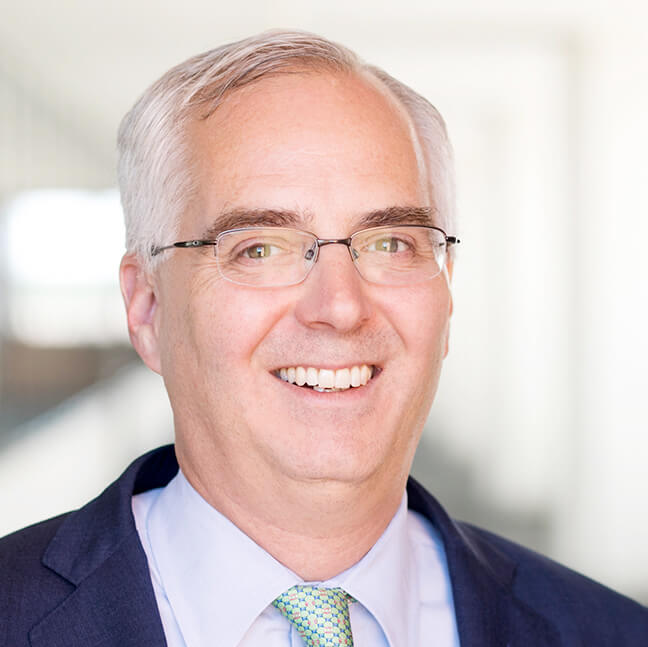The recent back-and-forth in the Wall Street Journal between former Attorney General Michael Mukasey and former Federal CircuitSee CAFC Chief Judge Paul Michel is telling about the state of the debate over PTABPatent Trial and Appeal Board. Reviews adverse decisions of examiners on written appeals of applicants and appeals of reexaminations, and conducts inter partes reviews and post-grant reviews. The Board also continues to decide patent interferences, as it was known as the Board of Patent Appeals and Interferences (BPAI) before the AIA. policy.
Attorney General Mukasey began with an op-ed asserting that semiconductor manufacturing is critical to American national security; that allowing foreign investment funds to extract billions of dollars from our domestic chip makers based on invalid patents is damaging to the nation’s interests; and that the USPTOUnited States Patent and Trademark Office. See also PTO. should terminate the Fintiv policy, which prevents litigation defendants from seeking validity review at the PTABPatent Trial and Appeal Board. Reviews adverse decisions of examiners on written appeals of applicants and appeals of reexaminations, and conducts inter partes reviews and post-grant reviews. The Board also continues to decide patent interferences, as it was known as the Board of Patent Appeals and Interferences (BPAI) before the AIA.. See “Patent Litigation Is a Matter of National Security,” Sept. 11, 2022.
Chief Judge Michel’s letter to the editor in response prudently concedes the first two points, but he defends Fintiv. See “A Patent Rule Worth Defending,” Sept. 23, 2022.
His arguments in favor of the policy are as follows:
- Fintiv prevents litigants from “routinely fil[ing] serial challenges;”
- Fintiv protects the “small patent holder” who is facing “deep-pocketed rivals,” and it “saves resources for everyone;”
- “NHK-Fintiv doesn’t prevent tech companies from challenging patents at the Patent Trial and Appeal Board;” and
- Fintiv’s implementation by the USPTOUnited States Patent and Trademark Office. See also PTO. was not “unilateral,” because it received “widespread support” in public comments, including from U.S. Senators.
What is striking about these arguments is how disconnected they are from the actual Fintiv policy.
Fintiv does not prevent serial challenges. It is a different USPTOUnited States Patent and Trademark Office. See also PTO. policy, General Plastic, that regulates serial filings. Fintiv, by contrast, frequently has been applied to block the first validity challenge that is ever filed against a patent.
Nor does Fintiv consider whether a patent owner is big or small. Indeed, the major beneficiaries of Fintiv have been well-funded NPEsNon-Practicing Entity. A broad term associated with trolls but now disfavored because it includes universities and legitimate technology developers that seek to license technology in advance rather than after a producing company has independently developed it. More. Also, district court litigation costs about nine times as much as a PTABPatent Trial and Appeal Board. Reviews adverse decisions of examiners on written appeals of applicants and appeals of reexaminations, and conducts inter partes reviews and post-grant reviews. The Board also continues to decide patent interferences, as it was known as the Board of Patent Appeals and Interferences (BPAI) before the AIA. trial. Forcing validity disputes from the PTABPatent Trial and Appeal Board. Reviews adverse decisions of examiners on written appeals of applicants and appeals of reexaminations, and conducts inter partes reviews and post-grant reviews. The Board also continues to decide patent interferences, as it was known as the Board of Patent Appeals and Interferences (BPAI) before the AIA. into district court does not “save resources.”
And Fintiv certainly does prevent tech companies (and many others) from seeking validity review at the PTABPatent Trial and Appeal Board. Reviews adverse decisions of examiners on written appeals of applicants and appeals of reexaminations, and conducts inter partes reviews and post-grant reviews. The Board also continues to decide patent interferences, as it was known as the Board of Patent Appeals and Interferences (BPAI) before the AIA.. That is the whole point of Fintiv—to “discretionarily deny” review at the Board.
If these are the arguments that are being made in favor of Fintiv these days, then the debate over this policy is over. The proponents have retreated into denial about what Fintiv actually does.
What Fintiv does is block PTABPatent Trial and Appeal Board. Reviews adverse decisions of examiners on written appeals of applicants and appeals of reexaminations, and conducts inter partes reviews and post-grant reviews. The Board also continues to decide patent interferences, as it was known as the Board of Patent Appeals and Interferences (BPAI) before the AIA. review for patents that are being asserted in court—particularly in the fast-moving districts that are favored by patent assertion entities. It cuts off access to the USPTO’s technical expertise for the parties that most need it, and thereby makes it much easier to enforce an invalid patent.
Don’t to take my word for it. Consider the example that Attorney General Mukasey himself cited. The VLSI v. Intel litigation was brought in the infamous Waco Division in Texas; it was based on patents that the USPTOUnited States Patent and Trademark Office. See also PTO. has since determined are reasonably likely invalid; Fintiv was applied to block the very first challenges that were asserted against the patents; and VLSI is no “small patent owner”—it is the litigation arm of a multi-billion-dollar hedge fund.
As for whether there was “widespread support” for Fintiv, demonstrating that its implementation was not “unilateral:” the public comments that Chief Judge Michel cites were sought and submitted nearly nine months after the policy was adopted. They have no bearing on how the policy was instituted.
Fintiv was not the product of notice-and-comment rulemaking. It was imposed by the agency as a “precedential” decision, with no review even within other parts of the executive branch, and no notice to anybody. Sounds pretty unilateral to me.
Moreover, the request for comments certainly drew a “widespread” response, but I wouldn’t call it supportive. The policy united diverse businesses in opposition. It was condemned in a combined letter from Cisco Systems, General Motors, and Verizon; Intel and Dell; the trade association for the auto industry; medical device makers; a group that represents retailers, restaurants, hotels, construction companies, and real-estate agents; and the entire financial services sector.
Here is what the latter had to say: “Fintiv and Valve violate basic principles of due process, encourage forum shoppingThe practice, by plaintiffs, of picking the most favorable court to file a lawsuit in., enable abusive litigation, and have damaged the integrity and credibility of the U.S. patent system.”
Oh, and the Senators who submitted comments? One of them is now a cosponsor of a bill that would repeal Fintiv. This recently introduced legislation would amend the Patent Act to provide that “the Director shall not in any respect consider an ongoing civil action or a proceeding before the International Trade Commission” when “deciding whether to institute an inter partes reviewAn adversarial procedure created by the AIA for challenging patents. Intended to be similar to a court proceeding, the parties argue before an Administrative Patent Judge, not a patent examiner. The challenger must show a reasonable likelihood of successfully invalidating one claim before the PTAB will agree to grant a petition for review. proceeding.”
The USPTOUnited States Patent and Trademark Office. See also PTO. also seems to have developed misgivings about the policy. Fintiv has largely fallen into desuetude—this year’s third quarter saw virtually no Fintiv denials at the PTABPatent Trial and Appeal Board. Reviews adverse decisions of examiners on written appeals of applicants and appeals of reexaminations, and conducts inter partes reviews and post-grant reviews. The Board also continues to decide patent interferences, as it was known as the Board of Patent Appeals and Interferences (BPAI) before the AIA..
It remains to be seen what the USPTOUnited States Patent and Trademark Office. See also PTO. ultimately will do with the policy, but so far Attorney General Mukasey appears to be getting the better of the debate about Fintiv.

